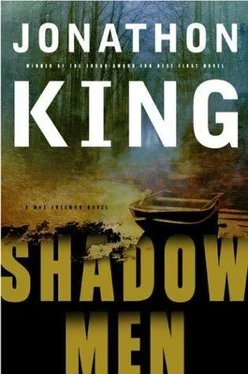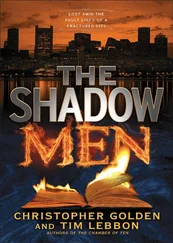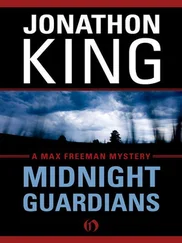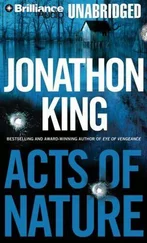Jonathon King - Shadow Men
Здесь есть возможность читать онлайн «Jonathon King - Shadow Men» весь текст электронной книги совершенно бесплатно (целиком полную версию без сокращений). В некоторых случаях можно слушать аудио, скачать через торрент в формате fb2 и присутствует краткое содержание. Жанр: Триллер, на английском языке. Описание произведения, (предисловие) а так же отзывы посетителей доступны на портале библиотеки ЛибКат.
- Название:Shadow Men
- Автор:
- Жанр:
- Год:неизвестен
- ISBN:нет данных
- Рейтинг книги:4 / 5. Голосов: 1
-
Избранное:Добавить в избранное
- Отзывы:
-
Ваша оценка:
- 80
- 1
- 2
- 3
- 4
- 5
Shadow Men: краткое содержание, описание и аннотация
Предлагаем к чтению аннотацию, описание, краткое содержание или предисловие (зависит от того, что написал сам автор книги «Shadow Men»). Если вы не нашли необходимую информацию о книге — напишите в комментариях, мы постараемся отыскать её.
Shadow Men — читать онлайн бесплатно полную книгу (весь текст) целиком
Ниже представлен текст книги, разбитый по страницам. Система сохранения места последней прочитанной страницы, позволяет с удобством читать онлайн бесплатно книгу «Shadow Men», без необходимости каждый раз заново искать на чём Вы остановились. Поставьте закладку, и сможете в любой момент перейти на страницу, на которой закончили чтение.
Интервал:
Закладка:
"So that's where you got these here coordinates and such?" he said.
I told him about the crate and its contents. His face only changed when I mentioned the rifle, the infamous gun that outshot his own father and gave the community a solid tiling to tie all the rumors to.
"You think John William Jefferson was capable of killing these men for three hundred dollars?" I finally asked him.
"Men out here in them days done a lot of things for that kind of money," Brown said, and I knew that included him. In my encounter with the old Gladesman three years ago, Billy had run what background there was on him and found that he had done time in prison on a manslaughter charge. In the late sixties an Everglades National Park ranger had been chasing Brown through the islands, trying to arrest him for poaching gators. Snaking his boat through the dizzying waterways just as he had done with the helicopter, Brown had led the pursuing ranger into a submerged sandbar. The government boat slammed into the unforgiving sand. The ranger pitched forward out of the cockpit and broke his neck. Brown turned himself in three days later when word spread that he was being sought for killing the man.
"I s'pose I know why ya'll asked me to help you, Mr. Freeman. If you're askin' if these here X's are the graves of them boys and their father, they is only one way to know," he said, standing up and rewinding the fishing line around his palm. "So let's go."'
Brown's boat was cleated at the dock and this time he had his homemade Glades skiff tied off on the back. I loaded my supplies and then locked up my truck. Within minutes we were moving north, the skiff slapping behind us on the end of a line. We headed into the sun, its early brightness burning white-hot. Brown pulled his billed cap low, shading his eyes so they were difficult to read, and I thought of the similar description of John William. They were men who worked and lived in water-reflected sunlight all their lives. They chose to exist in a desolate place where sociability was not a part of their everyday existence. The reasons they came may have been different, but why they stayed was not: they didn't like anyone else's rules or some other leader's vision or expectation. Eighty years of that independent blood had not yet been washed out by the generations.
"Yonder is where my daddy run a still in the twenties," Brown said, interrupting the drone of the motor and the slap of water against the hull. "Him and a half-dozen others had their fixin's on the smaller shell mounds. First they was in by Loop Road. Then the law started crackin' 'em an' they had to come further out. Daddy and them weren't too acceptin' of others comin' into their territory."
I'd learned to let Brown talk on the few occasions that he cared to. He was making his own point, under his own logic.
"Same thing happened to the gator hunters. You could take a dozen gators in a three-night trip. Sell the hides for a dollar fifty apiece for the six- to eight-footers.
"Then in '47, Harry Truman hisself come down and they drew up the boundaries for the Park and one day the best gator-huntin' spots was now illegal, and to hell with you if you and your daddy before you been livin' off that for forty years."
While he talked I unfolded Billy's map and tried to gauge our progress. But even with the detailed, satellite-aided photos, the myriad water trails and green islands were an impossible puzzle. I was lost when we suddenly came around a bend onto open water that was Chevalier Bay.
"They call it progress, Nate," I said, my tone flat and nonjudgmental.
"I know what they call it, son," he said. "That don't mean I got to like it."
The morning heat was building. A high sheet of cirrus cloud was not going to offer any respite from the blurred sun. The air was beginning to thicken with that warm, moist layer that rises up from the Glades like an invisible steam. It was as if the earth herself was sweating, and it carried the not unpleasant odor of both wet and drying plants and soil and living things. As we approached the northern boundary of the bay, I checked the map again and saw no obvious place to go. But Brown kept a steady course to a spot in the mangrove wall that only he could see. It wasn't until we were thirty feet from the green barrier that he pulled back on the throttle and I picked up the eight-foot-wide opening that he'd been heading for all along. We slid through the tunnel of mangroves for thirty minutes, the motor tilted up, the propellers burbling through the dark water. When we got to a broad opening to the outside again, Brown stopped the boat before moving out into the sun. I was checking the coordinates with the handheld GPS. If I was matching them up correctly, we were not too far, maybe two miles, south of the point where John William had marked the three X's on his crude map. Brown cut the engine and stood upright and silent, listening. He seemed to be holding his breath. I could hear nothing.
"Airboat," he said, not looking back me. "This ain't no place airboats usually come."
I waited for an explanation, which also didn't come.
"Check that skiff line if you would, Mr. Freeman. We gon' try to put some speed to 'er."
I went back and tightened down the cleated line; then Brown restarted the motor, moved out onto the wide channel and inched up the throttles. Each second he seemed to get a better feel for the depth and the rhythm of the curves and put more gas to it. I stood up and tried to check above the grass line, looking for the distinctive rounded cage of an airboat engine and the usually high-riding driver. The contraptions are designed to let the operator sit above the sawgrass so he can watch the landscape and curves of the canals instead of just guessing and navigating by pure instinct as Brown was doing. It also makes them more visible. I could see nothing behind and only another dark hammock of trees ahead in the distance. We were carving through the water trail now like a slalom skier, and Brown backed off the throttles only on the tightest turns-the skiff behind us was swinging on the rope and actually fishtailed into the grass several times. A small gator, maybe a four- footer, raised its head in the middle of the canal as we came roaring up. Brown never flinched or slowed and the gator flicked its tail and dived deep just before the bow clipped him. Our destination was clearly the hammock, so I concentrated on the horizon behind us. After a few minutes I turned and was surprised at how fast we'd moved up on it.
"Git your stuff, Freeman, 'cause we gon' grab up the skiff and hightail it north as soon as she stops. Hear?" Brown steered one long curve around a jutting piece of semi-land and then plowed headlong into the greenness, pulling the same slide and crash he'd done when the helicopter had followed us.
This time I was prepared and rode the lurch. I was out into the knee-deep water as soon as he cut the motor. I snatched up the skiff line and then he was beside me, both of us dragging the flat-bottom boat across the shallows. We were deep in the cover of tree shadow when I finally picked up the sound of a burring airplane engine, the noise growing from the direction we'd come. We stayed shoulder to shoulder. It was easier moving through the dense undergrowth this time. We were following a low path, almost like a riverbed with only inches of water in it. Maybe when the rains fell, the path actually ran like a river, because it seemed to cut directly south to north across the elongated hammock.
"Them boys cain't bring that airboat through here an' it's gon' take 'em plenty of time to go all the way round to git to the other side," Brown said, his breathing under control despite the exertion of pulling the skiff and stomping through the roots and muck of the path.
"How do you know they're following us?" I said, dodging a dripping curtain of air-plant roots that hung gray and mossy like the wet hair of an old woman.
Читать дальшеИнтервал:
Закладка:
Похожие книги на «Shadow Men»
Представляем Вашему вниманию похожие книги на «Shadow Men» списком для выбора. Мы отобрали схожую по названию и смыслу литературу в надежде предоставить читателям больше вариантов отыскать новые, интересные, ещё непрочитанные произведения.
Обсуждение, отзывы о книге «Shadow Men» и просто собственные мнения читателей. Оставьте ваши комментарии, напишите, что Вы думаете о произведении, его смысле или главных героях. Укажите что конкретно понравилось, а что нет, и почему Вы так считаете.












